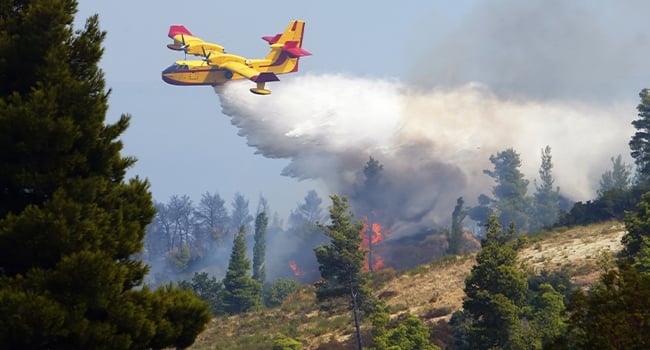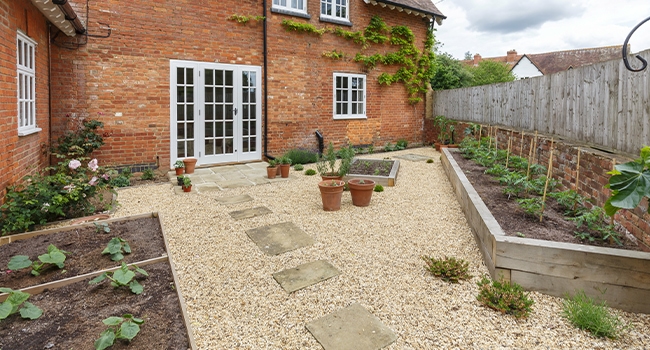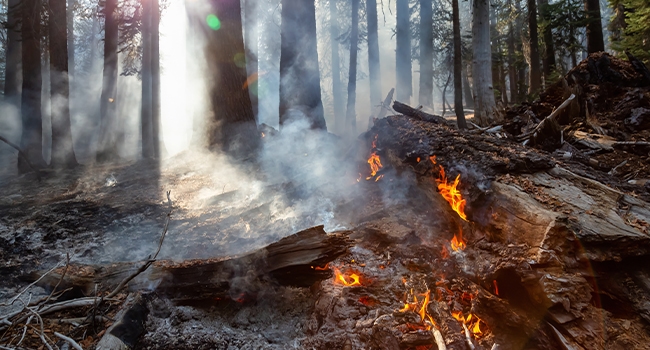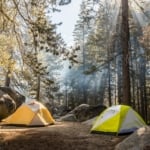9 Tips To Reduce The Threat Of Wildfires

These days, fire season is a part of life for many residents in the West. Once relegated to hot and dry summers, every year now packs the potential for a disastrous blaze. The following fire safety tips will hep prevent wildfires and protect your home, family, and community.
9 Tips to Reduce The Threat of Wildfires
1. Create a barrier of “survivable space” around your home.
Depending on the steepness of the terrain surrounding your home, you will want to clear any vegetation or “ignition loads” that are within 100-200 feet of any structures. Storage sheds, firewood, stacks of lumber, and propane or other fuel tanks should be at least 30 feet from the home. While this might seem inconvenient, keep in mind that many of these things are highly flammable.
2. Mow and water your lawn.
FireSafe Montana recommends at least 30 feet of lawn around your house to reduce the threat of wildfires. Beyond a well-groomed lawn, it’s also prudent to mow any native grass 100 feet from your house to further reduce fuel load.
3. Plant shrubs at least 3-5 feet away from your house.
Avoid planting grasses or highly resinous plants, opting instead for sedums, ground covers, or flowers. When growing perennials, trim them in the fall.
4. Use nonflammable landscaping techniques.
In between the plantings and the house, use nonflammable materials such as gravel, rock, flagstone, or concrete decking. This way, even if a spark falls in this area, there is nothing to burn.

5. Remove dead or weakened trees.
Healthy trees are better equipped to withstand fire. Trim back branches to no more than 10 feet high on the remaining trees and remove nearby brush.
6. Grow deciduous trees between evergreens and junipers.
You can prevent wildfires from spreading by planting deciduous trees between your evergreens and junipers. Green leaves don’t burn as well as resinous needles.

7. Keep a water hose handy.
We recommend keeping 100 feet of hose hooked up to the faucet, ready for use at all times.
8. Clean your chimney regularly.
Be vigilant on chimney maintenance, cleaning it yearly and screening it to prevent sparks from escaping.
9. Tag your animals.
Make sure all of your pets have tags or are chipped. For livestock, write your phone number on their hooves in case the animals are turned loose during an emergency.
How to Stay Safe if Wildfire smoke Affects Air Quality
Sometimes the smoke from fires hundreds of miles away can affect you and the air quality outside your home. To check the air quality in your home go to AirNow and type in your zip doe.
To stay safe follow these simple tips:
- Stay informed. Tune into your local TV/Radio station or NOAA.
- Stay inside if possible, especially if you have respiratory issues or other health problems or are a senior or child. (This also goes for domestic animals if possible. They breathe the same air we do.)
- If you must go outside, wear a N95 or other high quality mask, and/or avoid strenuous physical outdoor activity during these times. Limit your time outside (and your pets) until the air quality improves.
- If possible, avoid using items that increase pollution.
- For larger animals/livestock, limit exercise if possible and provide plenty of fresh water.
Join The Discussion
What do you do to prevent wildfires and safeguard your property?
Are there any fire safety tips you would add to our list?
Let us know n the comments below!
Related Articles
What To Do If A Fire Breaks Out
10 Things Your Should Never Burn In Your Fireplace

Amy Grisak
Amy Grisak is a freelance writer, blogger, and photographer specializing in gardening, local food, and stories about her home state of Montana. She enjoys sharing her experiences with self-reliant living and outdoor recreation. Her article on the "hugelkultur" gardening technique appears in the 2021 Farmers' Almanac. You can follow her topics on her site, AmyGrisak.com.






The biggest cause of wildfires being so damaging is that the states don’t practice proper & important forest management. Most fires result from lighting strikes, some from carbon embers from the tailpipe of autos, inattentive people when smoking or not properly extinguishing a campfire & all too often intentionally starting a fire. Many fires would not spread as quickly if there were better forest management practices…reducing the amount of fuel that feeds these fires.